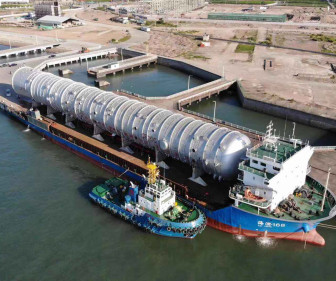Nigeria’s 650 kbpd Dangote Refinery being commissioned; largest single-train refinery in world
Green Car Congress
MAY 22, 2023
The Dangote Petroleum Refinery, which covers an area of approximately 2,635 hectares—about the six times the size of Victoria Island in Lagos, Nigeria—is expected to be Africa’s largest oil refinery and the world’s largest single-train facility. Sinopec-built atmospheric tower on its way to Dagote in 2019.












Let's personalize your content